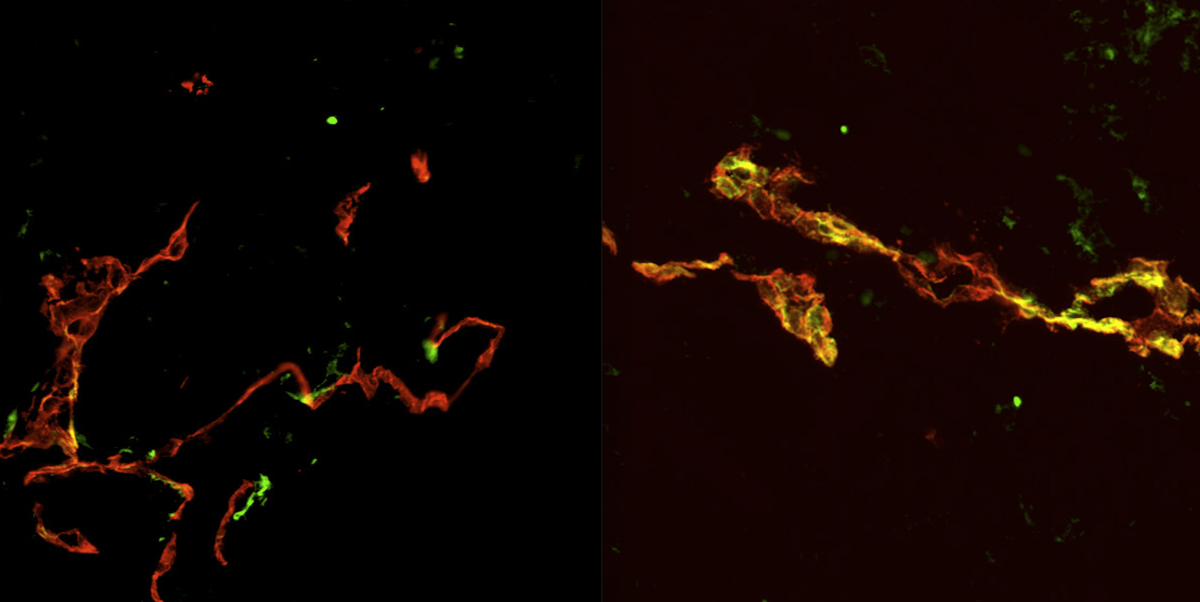News release
From:
Groundbreaking research undertaken at the Harry Perkins Institute of Medical Research in Perth has shown that administering anti-cancer drugs at a hundred-fold lower dose than standard protocols could improve the tumour’s response to immunotherapy.
Perkins Head of Cancer Microenvironment, Professor Ruth Ganss from The University of Western Australia (UWA), said the new research had shown an alternative path to high doses of anti-cancer drugs to fight tough cancers like melanoma, brain cancer or pancreatic cancer.
Prof Ganss has dedicated her life to studying the microenvironment around solid tumours.
This microenvironment consists of “sticky” support tissue and blood vessels that feed the cancer and make the tumour impenetrable to cancer-fighting drugs and immunotherapy.
Prof Ganss’s latest research, published this week in the prestigious Journal of Clinical Investigation, showed that when the dose of anti-cancer drugs was considerably reduced, the tumour initially grew, but then the blood vessels surrounding the tumour normalised, allowing immunotherapy to penetrate the tumour and be more effective.
“The anti-cancer drugs we are interested in are already clinically approved, this opens the way for us to propose new dosing and timing protocols for patients,” said Prof Ganss.
“Our clinical collaborators have been excited by the results that show an alternative method of administering drugs and immunotherapy together.
“The next stage in our research is a clinical trial where we will analyse tissue samples in patients with these hard-to-treat cancers.
“My team and I are excited to have found new ways of modulating cancer blood vessels with already clinically approved drugs, and now we can hopefully produce an outcome which lends itself to better, more effective treatments for the very sick and prolonging their lives.”
Two other researchers from the Perkins, Professor Jonas Nilsson, Head of Melanoma Discovery, and Professor Alistair Forrest, Head of Systems Biology and Genomics were among the research team, as well as scientists from the US and Germany.
--
Professor Ruth Ganss obtained her PhD at the University of Heidelberg/Germany in 1994. As a postdoctoral fellow in the laboratory of Prof. Douglas Hanahan at the University of California, San Francisco she gained profound knowledge in the analyses of preclinical mouse models with a focus on tumour stroma. She has been a Laboratory Head at the Harry Perkins Institute since 2006.
Her laboratory at the German Cancer Research Centre in Heidelberg (1997-2006) focused on vascular aspects of tumour immunity. Since 2006, she holds a professorial appointment at The University of Western Australia and conducts research at the Harry Perkins Institute of Medical Research. She leads a research program which integrates cancer, immunology and vascular biology at the highest competitive level.
She has more than 20 years of expertise in studying the tumour microenvironment in transgenic and orthotopic tumour models. Her current research activities focus on translational anti-cancer aspects of stromal remodelling and immunotherapy.
Multimedia





 Australia; WA
Australia; WA



